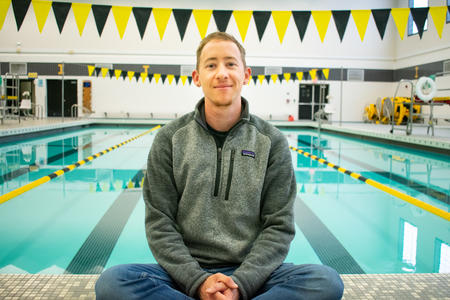My fellow Crosscut scribbler Jordan Royer has the best take on the latest wrinkle in the Seattle School Board’s efforts to hire a new superintendent: “It’s like not wanting the babysitter to meet your child ahead of time because the kid’s such a monster.” On Tuesday the Seattle Times somewhat breathlessly announced (cue scary music) that “you will not meet this person before he or she is chosen." That’s because the board won’t host an open meeting where the public can meet and question the finalists for the job — as it did in previous searches, and as neighboring school districts did when they recently hired new superintendents.
“Sadly,” adds Jordan, “it’s probably the right decision.” The “monster” in his analogy is the Seattle public — or rather, the small subset of activists, watchdogs, and gadflies who denounce district policies and persons at board meetings and other public forums, and who laid it on when the last two crops of prospective superintendents came before the public in 2003 and 2007. In 2003, all five finalists took themselves out of contention, forcing the board to hire Raj Manhas, who didn’t place and didn’t have education experience. The next time two of three finalists withdrew, one of them following the public meeting. The district hired the third, Maria Goodloe-Johnson, who like Manhas left after a relatively brief, stormy tenure.
The arguments for a public gauntlet are that it tests the candidates under fire and gives the eventual winner a chance to connect with the public and begin building support for her or his program (as Rem Koolhaas did when the Seattle Public Library trotted out the architects competing to design its new downtown showpiece). But it doesn’t always work that way. Goodloe-Johnson withstood the barrage but proved an aloof leader who didn’t connect with the public.
There’s no knowing if running the gauntlet induced any of the candidates to drop out; a daunting supersized search committee was also a factor in 2003. But “sometimes the crowd doesn’t make a good impression,” says board president Michael DeBell. “You’re giving [candidates] an impression that may not be realistic” — that Seattle is a den of angry, lawsuit-rattling activists. “I think generally when people get out in the buildings, they find a favorable educational community. The last levy passed by 70 percent, the highest margin in the state. I guess that’s the silent voting majority.”
Furthermore, says DeBell, public rumpus sessions offer little illumination to compensate the risk of driving off good candidates: “As a board member I got very little out of the [2007] public meeting.”
For all that, Seattle’s board seems to have opted for a more open process than its search consultants, Chicago-based Hazard, Young, Attea & Associates (HYA), recommended. DeBell says HYA urged not just forgoing the public encounter but even keeping the entire process under wraps, so the chosen one could “entertain an offer before they disclose they’re seeking the position. We rejected that.” Instead two public proxies, the press and a 25-citizen focus group (selected by the board, but broadly representative), will question the candidates. So the wider public will get to see and hear, though not speak to, them.
DeBell says it’s not just noisy Seattle; HYA has recommended similar blackouts in other searches. I wanted to ask HYA about that and ask how the firm juggles the multiple superintendent searches it conducts at any given time, and how it apportions candidates to various districts that are presumably seeking the same top talent. (HYA is currently conducting searches for Berkeley, Omaha, Jersey City, the state of Maryland, and — say it ain’t so — Spokane. It recently did one for Baltimore County.) Sure enough, the secrecy-loving headhunters didn’t return multiple calls.
So I’ll just have to invent — er, reconstruct — this dialogue myself. Horatio Mann, a rising star on the superintendent circuit, is seeking new challenges after leading the Zenith Integrated School District to an average 22 percent rise in test scores, dropout rates lower than the interest on 10-year treasuries, and a successful, long-overdue building campaign.
“Whatcha got for me?” Mann asks the HYA matchmaker.
“We could send you to Berkeley. It’s lots of fun — half the classes are IPP, and Alice Waters grows parsnips and chervil for the cafeteria. Spokane and Omaha are also a breeze, but boring.”
“What about Seattle? Beautiful city, pretty diverse, lots of money and lots of smart people. The Gates Foundation is right there, right? I hear everyone votes for levies.”
“Yes, but….”
“But what?”
“You ever hear of Seattle process? The noise never stops — everyone wants to be heard. Public meetings are a zoo. They got bloggers like you wouldn’t believe.”
“That’s okay, it means they care. I can handle them. What else.”
“Well, there’s the board.”
“What do you mean?”
“The voters threw out a bunch of incumbents the last couple times, and now some of the newer members want to micromanage everything. They fought forever over rules about sending staff on wild goose chases. And one even proposed that the board approve vacations for top staff.”
“Jeez, that sounds like Jimmy Carter and the White House tennis courts! Okay, give me Spokane.”
http://crosscut.com/2012/03/16/seattle-schools/22089/A-coalition-of-the…;


